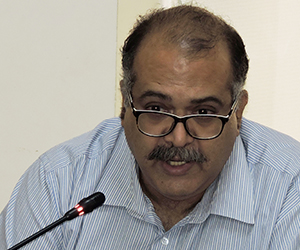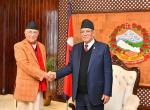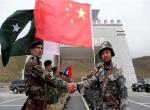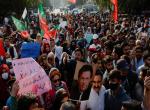The curious thing about the Joint Statement issued after the meeting between the Indian and Pakistani Prime Ministers in Ufa is that it is being interpreted by both sides in a way that suits them. The problem is that these divergent interpretations raise questions about whether there is indeed a clear understanding on where the road map that the two countries have set to re-engage with each other will lead. That the statement was somewhat loosely worded and left enough wriggle room for both sides could either be a case of masterly drafting or a monumental goof up. In either case, it doesn’t inspire much confidence that the nth resumption of talks (even this is debatable) will end up any different from the previous talks between the two countries.
Besides getting the monkey of international pressure to engage with Pakistan off India’s back, perhaps the only positive spin that can be put on the ‘understanding’ reached by the two Prime Ministers is the fact that they are both being criticised in their countries is indicative of their having met each other mid-way. This means they both showed a degree of flexibility to accommodate each other in order to kick-start a dialogue of sorts. At the same time, they haven’t given away anything substantial that would open them to the charge of a sell-out. In other words, compromise yes, capitulation no. It is another matter that public opinion in both countries has hardened so much that even a compromise which ostensibly entails no significant cost has very few takers.
If things were to be stretched more and another positive spin was to be given to the Ufa statement, then it could be said that the main talking point between India and Pakistan is now going to be terrorism and security. India has long been insisting on terrorism being accorded centrality in any discussion with Pakistan. Ufa has achieved that with the two NSAs to discuss terrorism, and security officials from both sides to open a track to ensure stability along the borders. Having got what it wanted, the Indian side accommodated Pakistan’s desire to put the issue of Jammu and Kashmir on the table by tangentially including a reference to it under the rubric of being “prepared [emphasis mine] to discuss all outstanding issues”. Presumably this includes not just J&K but also trade and all other issues because in the statement it comes in the context of and follows the bit about “collective responsibility to ensure peace and promote development”.
The criticism of Nawaz Sharif in Pakistan over the absence of the K-word is perhaps not as silly as the excitement in India at the inclusion of the phrase “voice samples” and the reference to the 26/11 Mumbai terror attack. In other words, the exclusion of the K word doesn’t necessarily mean that Kashmir is off the table, just as the inclusion of “voice samples” and expediting the Mumbai case trials (in Pakistan) doesn’t mean there will be any forward movement on it. If anything, the reference to 26/11 is merely cosmetic because both sides agreeing “to discuss ways and means to expedite the Mumbai case trials…” means nothing. The two sides can discuss these ‘ways and means’ till the cows come home. That the Pakistanis have no intention of delivering on 26/11 should have been clear to India after top ministers declared in the Pakistani parliament that the government has no intention of banning the Jamaat-ud-Dawa. What is more, they even told a brazen lie that there is no evidence of any link between the Lashkar-e-Taiba and the Jamaat-ud Dawa, even though it is well documented that the JuD was formed on the eve of an international ban on the LeT way back in 2001.
But chances are that if Pakistan gives India the run around on 26/11, India has the space to wriggle out of talking Kashmir because no structure has been specified for discussing it and India can always stonewall by saying that being ‘prepared’ to discuss is not quite the same as actually discussing Kashmir. Clearly, going strictly by the text of Ufa, there is no framework laid out under which Kashmir will be discussed and for the Pakistani Advisor of National Security, Sartaj Aziz, to claim that there will be no talks without Kashmir doesn’t conform to the letter of the Ufa Joint Statement which only says that the two NSAs will “discuss all issues connected to terrorism”. It is of course another matter that India has no reason to be chary of discussing Kashmir with Pakistan. After all, India has a solid claim over a part of the Indian state that is under Pakistan's illegal occupation and which India wants Pakistan to vacate, not by force of arms but through a dialogue. Therefore a dialogue on Kashmir doesn’t mean discussing the issue on parameters determined by Pakistan. On the contrary, if India discusses Kashmir it will be to forcefully put forward India’s position. What is more, since India hasn’t given up its claim over Pakistan occupied Kashmir and it keeps protesting Chinese activity in that area as well as the fraudulent ‘elections’ that Pakistan conducts in the occupied areas, India must discuss these issues on the table with Pakistan.
What the Ufa Joint Statement has also done is that it has for all practical purposes ended the Composite Dialogue process and structure. Out of the basket of issues that comprised the Composite Dialogue, the focus is primarily on terrorism which the NSAs will discuss. There is really no new framework or structure to discuss the other ‘outstanding issues’. Border issues will be discussed between BSF and Pakistan Rangers and between the two DGMOs, which in itself is no earth shaking development considering that the DGMOs and the BSF-Rangers officials have been meeting in the past as well. For now at least this is the sum total of engagement. While earlier it was the Foreign Secretaries who dealt with Peace and Security and J&K, followed by the Foreign Ministers who took stock of the process after each round was over, now it will be the NSAs who will be the points-men on both sides but only for discussing terrorism. They could discuss Kashmir and other issues but it is unlikely if those will be the central point of discussion. It is entirely possible that they may come up with some forum where these issues could be discussed in a more structured manner, but that remains to be seen. The decision to release fishermen and their boats is laudable and addresses a humanitarian issue that affects both sides. The mention of religious tourism is extremely vague and it isn’t clear who will decide on the “mechanism for facilitating religious tourism”.
The problem with the Ufa statement isn’t so much with its text as it is with the context. The text is quite in India’s favour; the context less so. And since the text is somewhat divorced from the context, harbouring any expectations from the tentative resumption of dialogue is quite misplaced.
The fact that India sought a meeting with Pakistan will send a wrong signal to the Pakistanis who will see it as India dealing with them from a position of weakness. The way the Pakistanis see it, the evolving regional strategic environment is going in their favour. Their apprehensions about Afghanistan and its closeness to India are now being addressed. So much so that the Pakistanis think they have pretty much got Afghanistan stitched up with Ashraf Ghani bending over backwards to appease them and their Taliban proxies all set to move into the driving seat in Afghanistan. On the economic front, the Chinese investments in Pakistan under the umbrella of the Economic Corridor will kick-start the economy and prove to be a game-changer. Any compulsion to deal with India for the economic benefits that would come Pakistan's way is no longer operative. Not just India, the Pakistanis also think they don’t need to do every bidding of the Arabs since they now have Chinese money to fall back upon. The Western pressure, for whatever it was worth (and it wasn’t worth much anyways as far as India is concerned) to crackdown on terror infrastructure has for all practical purposes ended. The Americans and the other Western countries are tilting in favour of Pakistan, bestowing them with military equipment and economic assistance. The Russians too are wooing the Pakistanis and appear to be using Pakistan to balance their ties with India which they think is moving away from them. The Central Asian States are also interested in dealing with Pakistan, both to get a handle over terrorism as well as to possibly link up with the CPEC to get an outlet to the Arabian Sea. In this regional context, the Pakistanis will be justified in thinking that India is now getting isolated and hence is forced to reach out to Pakistan. And by asking for talks India has only reaffirmed this feeling among the Pakistanis. Whether or not the Pakistanis are over-estimating their strategic importance is hardly important. What is important is that this is their perception and in light of this it is quite pointless to expect them to be reasonable in their relations with India.
The second aspect of the context is that nothing has changed on the ground which would lead anyone in India to think that Pakistan has decided to turn over a new page in its relations with India. If anything, the ground situation and the sentiment has only turned negative over the last year and a half. Pakistani propaganda against India, much of it directed by the military establishment, has become hysterical with some embedded Pakistani analysts even accusing India of backing the rise of IS in Afghanistan apart from levelling the usual litany of lies about Indian hand behind the Pakistani Taliban, the Baloch insurgents, the disturbances in Karachi and what have you. According to the paid media in Pakistan, the Indian intelligence agency has set aside a sizeable amount of money – some claim around a billion dollars – to sabotage the CPEC. In addition to this propaganda is the ratcheting up of rhetoric on Kashmir, both domestically as well as internationally. There is also the increasing activity inside Pakistan of terror groups operating against India. Hostile actions against Indian interests in Afghanistan are also on the rise, including the suspected attack on a hotel in Kabul where the Indian ambassador was supposed to be present. At the political level, the rhetoric in both countries also belies any possibility of a détente between them, forget about rapprochement.
Given that nothing has changed on the ground, by re-engaging Pakistan, the Modi government has fallen back on the failed template of the past. Prime Minister Modi’s predecessors made the same mistake of imagining that they will be able to make a difference until their imagination was dashed on the rocks of reality on ground. Clearly, by re-engaging Pakistan despite nothing on ground to suggest that the result of this re-engagement will be any different from the past such efforts, Mr Modi has dashed the hopes of those who thought that his government will forge a new template on how to deal with Pakistan. All that has happened in Ufa is that the old template has been tweaked and repackaged but in substance it is no different from the past which is that talks is the only option. If it is the only option then it is so because other options haven’t been developed, which was precisely what was expected from the Modi government. Even otherwise, talks just for the sake of talks has been tried in the past and hasn’t led to anything except shake off whatever international pressure there is to keep the temperature in the subcontinent from boiling over. The problem is that this remains a fragile process and one big terror incident is enough to bring this process crashing down. Worse, the Modi government will have to pay a heavy political price if such an incident takes place.
Arguably the worst thing to happen with the re-engagement process is that it has erased whatever red-lines the Modi government had laid out, particularly on Kashmir. When Finance Minister Arun Jaitley declared that Pakistan will have to decide whether it wants to talk to the government of India or to those who want to break up India, it was a clear red-line. This was breached when during the ill-advised ‘SAARC Yatra’ the government decided to turn a blind eye to meeting between the Pakistani diplomats and those ‘who want to break India’ as long as these meetings happened before or after a respectable and reasonable time of an official meeting between the two governments. The question that now hangs in the wind is whether the government of India will refuse to engage with the Pakistani NSA if during his visit to Delhi he decides to meet with the Kashmiri separatists? Or will the government acquiesce to a meeting between Pakistan and those who want to break India before or after such a meeting. What will be the signal that this will send out?
Finally, there is the whole question of whether Mr Modi’s counterpart in Islamabad has anything in his store to deal with India. Does Nawaz Sharif even call the shots in his country especially when it comes to dealing with India? Will any purpose be served in dealing with a Prime Minister who is reduced to handling municipal functions and performing ceremonial duties while the real power rests in the GHQ in Rawalpindi?
Chances are therefore that the re-engagement with Pakistan will not go anywhere for the reasons outlined above. India may have scored some diplomatic points in Ufa, but there will be a cost to be paid when this process collapses. Instead of taking the Pakistanis at face value – top officials in the Ministry of External Affair have said that they take what is told to them seriously instead of what is said in Pakistan for domestic consumption – India should judge Pakistan on the basis of ground realities. This means laying out a set of metrics by which India can judge if indeed Pakistan is ready to make a break from the past and forge a new relationship with India. If such a change is visible, India should go the extra mile to engage Pakistan; if there is no such change, then India should go the extra-mile to remain disengaged from Pakistan. Hopefully, after the process that started at Ufa collapses, this will be the trajectory that the Indian government will adopt.
Published Date: 15th July 2015, Image Source: http://indiatoday.intoday.in
(Disclaimer: The views and opinions expressed in this article are those of the author and do not necessarily reflect the official policy or position of the Vivekananda International Foundation)









Post new comment